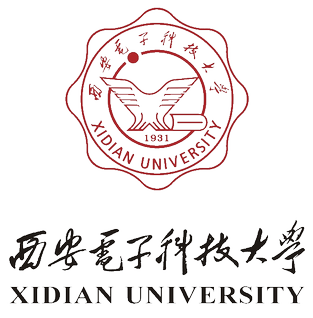Related Research Articles

Tsinghua University is a national public research university in Beijing, China. The university is funded by the Ministry of Education of China. It is a member of C9 League, Double First Class University Plan, former Project 985, and former Project 211.

Xidian University is a public research university in Xi'an, Shaanxi, China, that is administered by the Ministry of Education of China. In 2020, U.S. News & World Report ranked Xidian 8th nationally and 22nd globally for computer science. It is a member of the Chinese Double First Class University Plan. It was also funded by Project 211.

Li Zhijian was a Chinese physicist. He was a pioneer of Chinese microelectronics. He was former Chief Director of the Institute of Microelectronics, Tsinghua University; and the ex-Chairman of the Academic Committee, School of Information Science and Technology, Tsinghua University.
Shi Zhongci, also known as Zhong-Ci Shi, was a Chinese mathematician. He was a computational mathematician and an academician of Chinese Academy of Sciences (CAS).
Zhang Mingjie is a Chinese structural biologist. He is Kerry Holdings Professor of Science and the Chair Professor of Biochemistry in the Department of Biochemistry at Hong Kong University of Science and Technology (HKUST). He was an overseas assessor of the Chinese Academy of Science. His research is focusing on molecular mechanisms of organization and regulation of neuronal signaling complexes and machineries in controlling cell polarity by using protein crystallography and NMR spectroscopy. In 2006, his structural and biochemical studies in signal transduction complex organization was rewarded for the State Natural Science Award, which is one of the most important national awards of science in China.

Gao Fu, also known as George Fu Gao, is a Chinese virologist and immunologist. He served as Director of the Chinese Center for Disease Control and Prevention from August 2017 to July 2022 and has been Dean of the Savaid Medical School of the University of Chinese Academy of Sciences since 2015.

Li Lanjuan, also romanized as Lan-Juan Li, is a Chinese epidemiologist and hepatologist. She is a professor at Zhejiang University School of Medicine, an academician of the Chinese Academy of Engineering, and serves as the director of the State Key Laboratory for Diagnosis and Treatment of Infectious Diseases. She developed Li-NBAL, an artificial liver support system that is used to sustain the lives of people suffering from acute liver failure, and won multiple national awards for her roles in combatting the SARS, H1N1, and H7N9 epidemics.
Li Guojie is a Chinese computer scientist who served as dean of the School of Computer and Control Engineering, University of the Chinese Academy of Sciences.
Zhang Qian'er was a Chinese chemist who was a professor and doctoral supervisor at Xiamen University. Zhang was a member of the 8th and 9th Standing Committee of the Chinese People's Political Consultative Conference. Zhang was a member of the 10th, 11th and 12th Standing Committee of the Chinese Peasants' and Workers' Democratic Party.
Zeng Yi was a Chinese virologist. He was a professor at Beijing University of Technology and a researcher at Chinese Center for Disease Control and Prevention.
Zhan Qimin is a Chinese molecular oncologist currently serving as director of Peking University Medicine Department, executive vice-president of Peking University and dean of Peking University Shenzhen Graduate School. He is a member of the Communist Party of China.
Zhang Xinshi was a Chinese plant ecologist. He was the founder of China's quantitative vegetation ecology and international information ecology, and established China's first laboratory of quantitative vegetation ecology. He was a member of the 8th, 9th and 10th Standing Committee of the Chinese People's Political Consultative Conference.
Yang Fuqing is a Chinese computer software expert who is a professor at the School of Information Science and Technology, Peking University, a member of the Chinese Academy of Sciences, and currently chairwoman of the university's School of Software and Microelectronics and director of National Engineering Research Center of Software Engineering.
Wu Dexin is a Chinese female scientist specializing in semiconductor and integrated circuit. She is an academician of the Chinese Academy of Sciences.
Zhang Fusuo is a Chinese plant nutritionist who is a professor at China Agricultural University and director of Resource Environment and Food Security Research Center, and an academician of the Chinese Academy of Engineering.
Mao Yongze was a Chinese nuclear technology engineer, and an academician of the Chinese Academy of Engineering.
Zhang Xingqian was a Chinese metal physicist who was a professor at the China Academy of Engineering Physics, and an academician of the Chinese Academy of Sciences.
Tang Youqi was a Chinese physical chemist who was a professor at Peking University, and an academician of the Chinese Academy of Sciences.
Zhang Pingwen is a Chinese mathematician and university administrator, currently serving as president of Wuhan University. He is an academician of the Chinese Academy of Sciences.
Zhai Zhonghe was a Chinese cell biologist, an academician of the Chinese Academy of Sciences. He was a member of the Chinese Communist Party.
References
- 1 2 3 4 Zhang Xiaofang (张晓芳) (19 April 2018). 奋斗永不言止——记北大信息科学技术学院王阳元院士. Peking University (in Chinese). Retrieved 22 June 2021.
- 1 2 Sheng Jie (盛洁); Zhang Cheng (张程) (22 June 2021). “不解决卡脖子问题,我死不瞑目”. The Paper (in Chinese). Retrieved 22 June 2021.